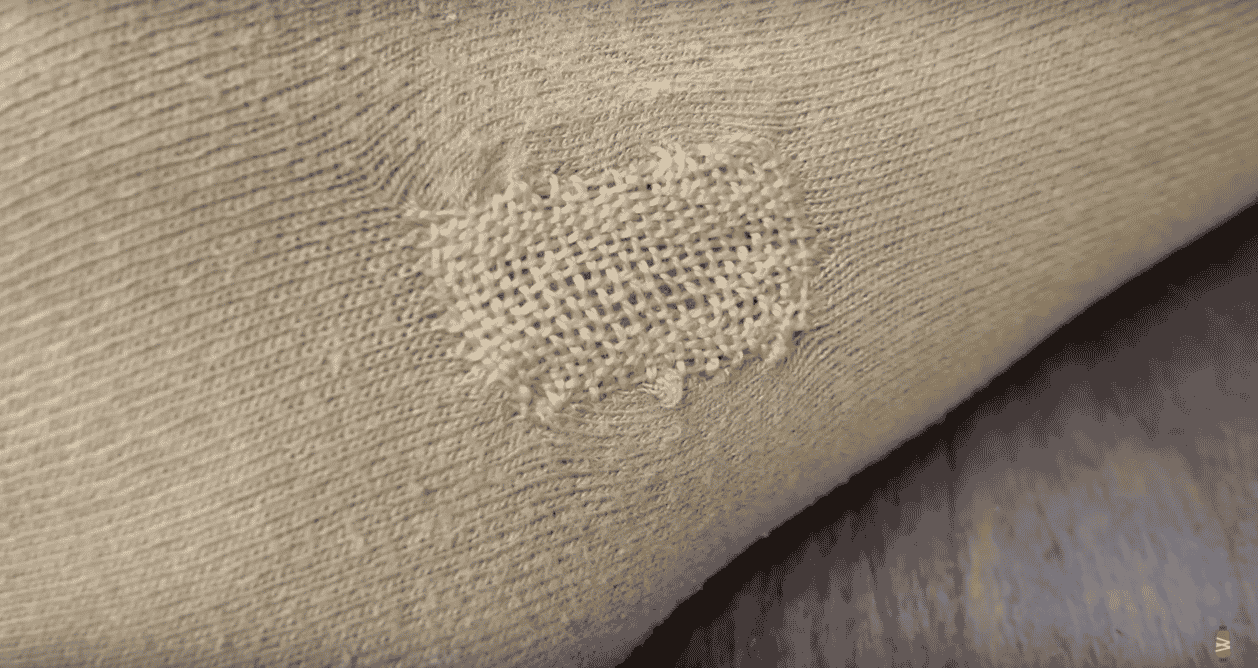Socks are always one of the fastest pieces of clothing to wear out, so why not try to preserve them (and its mate) instead of just tossing them away when a hole shows up? Darning is a super simple technique everyone can do, and you can use this technique for any piece of clothing, accessory, blanket, or item that has a hole in the fabric. We’ll show you two ways of darning a sock, whether you want to make it look good as new or embellish it with a statement.
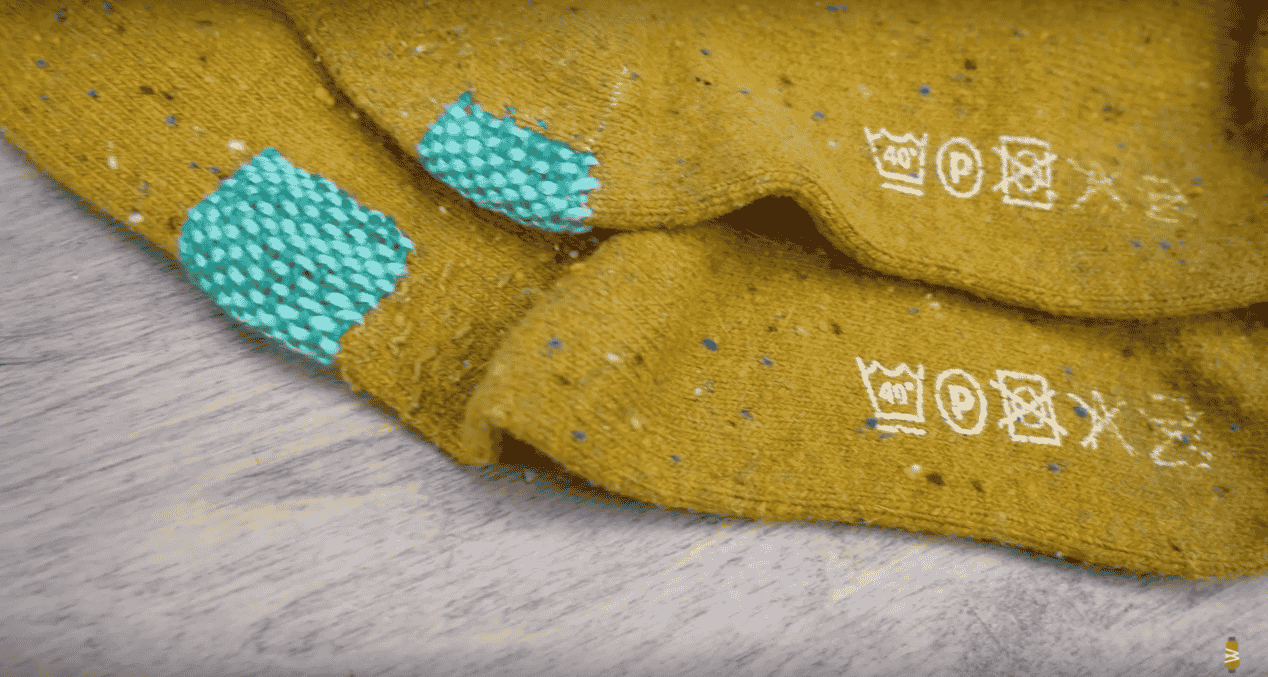
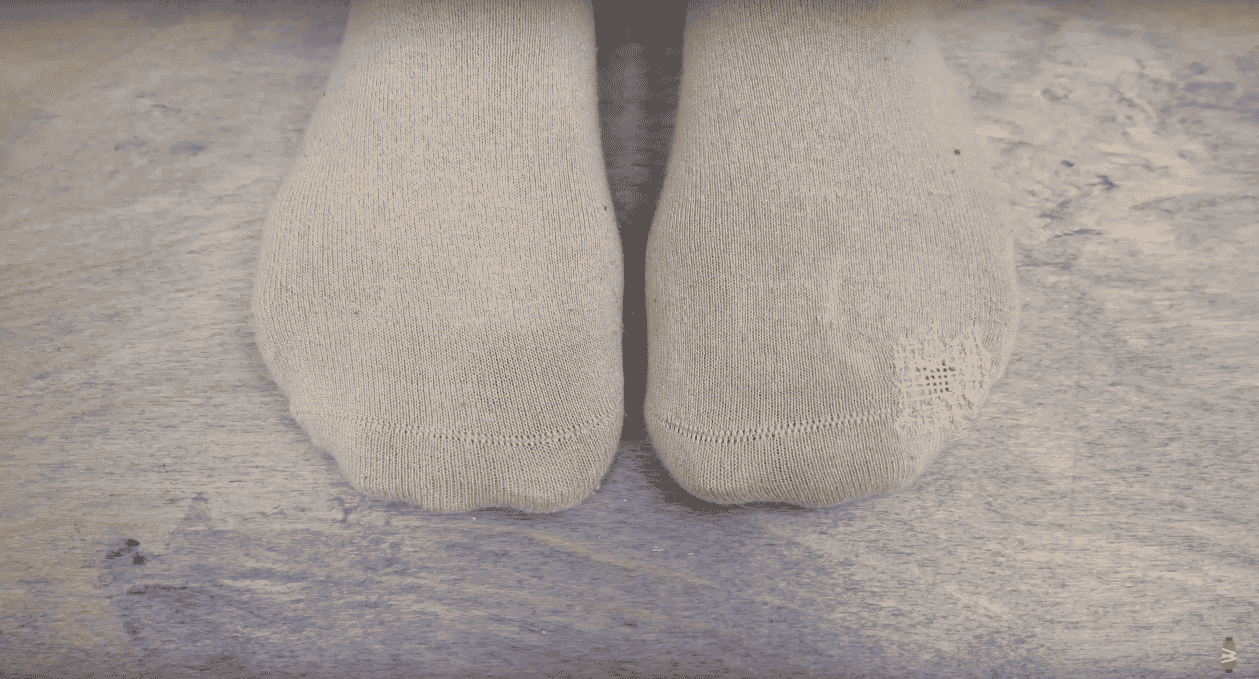
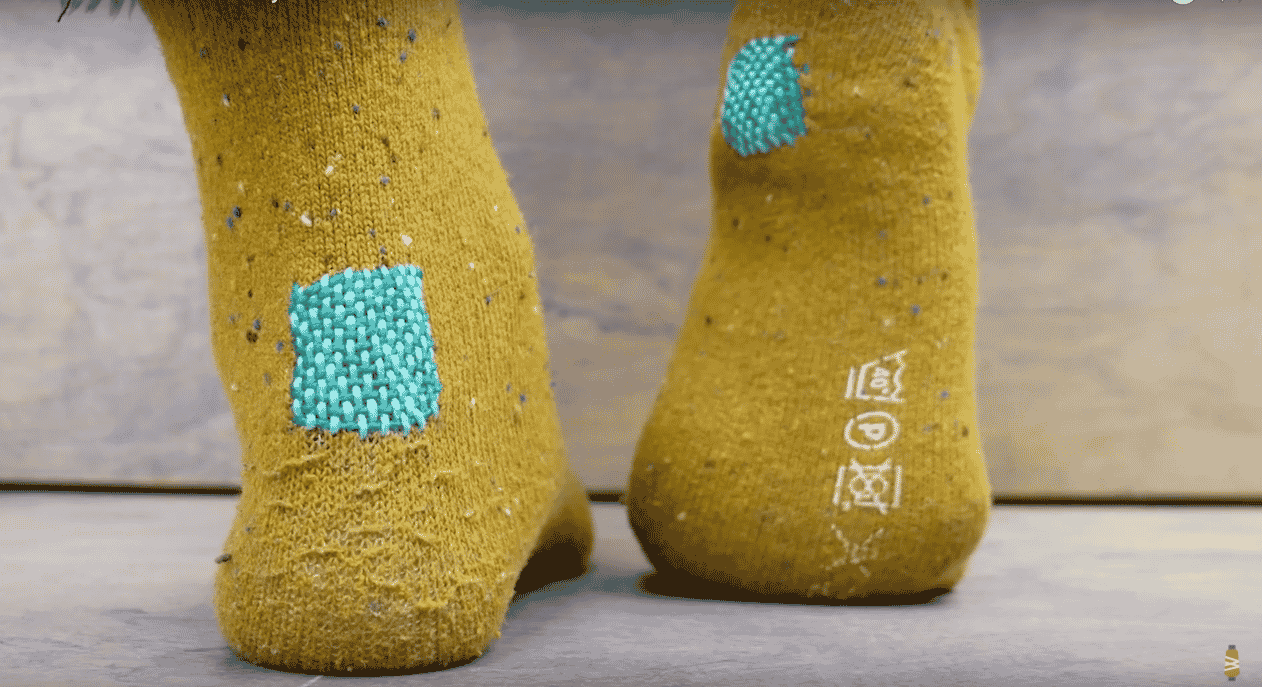
First thing you will want to do is take a close look at the thickness of your sock. In order to mend the hole you need a thread that is a similar weight to the sock.
For our thicker sock we are using a 3wt thread called Eleganza, which you can purchase here. We love this thread line because since it has been double gassed it results in very low lint- making it very smooth and easy to work with. It is also very strong and therefore great for mending.
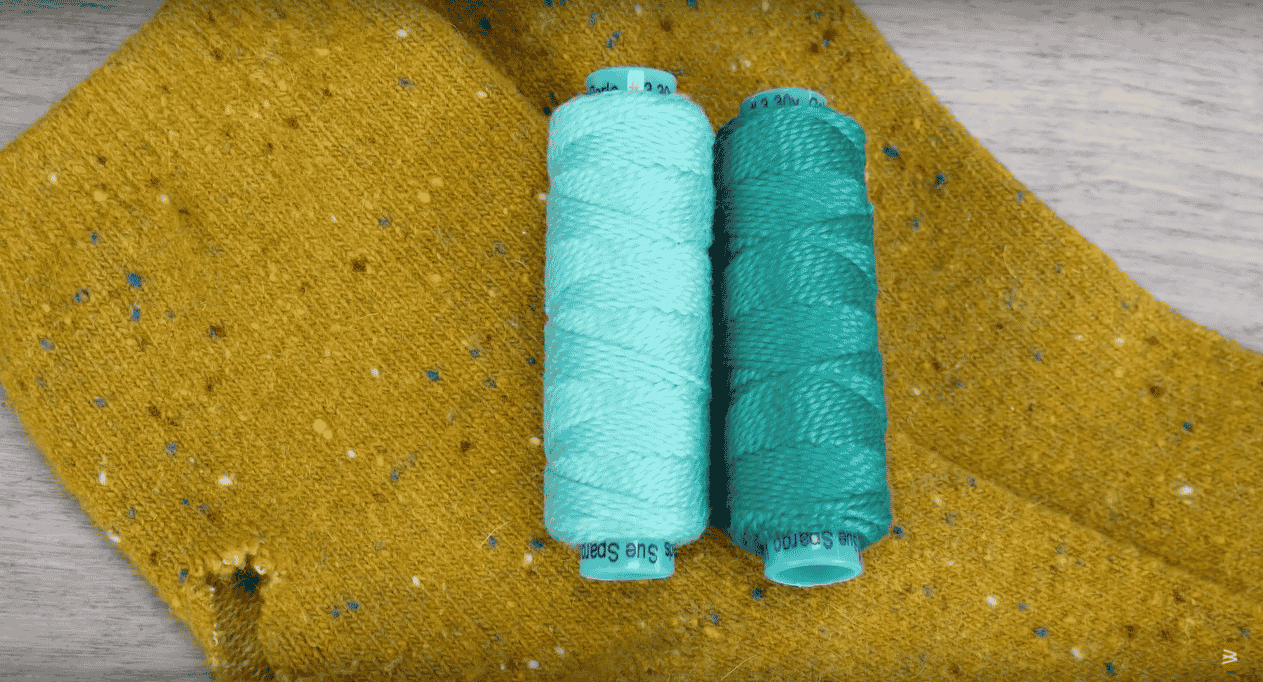
For the thinner sock we are using the same Eleganza but in a thinner 8wt instead. You can purchase buy following the same link listed above.
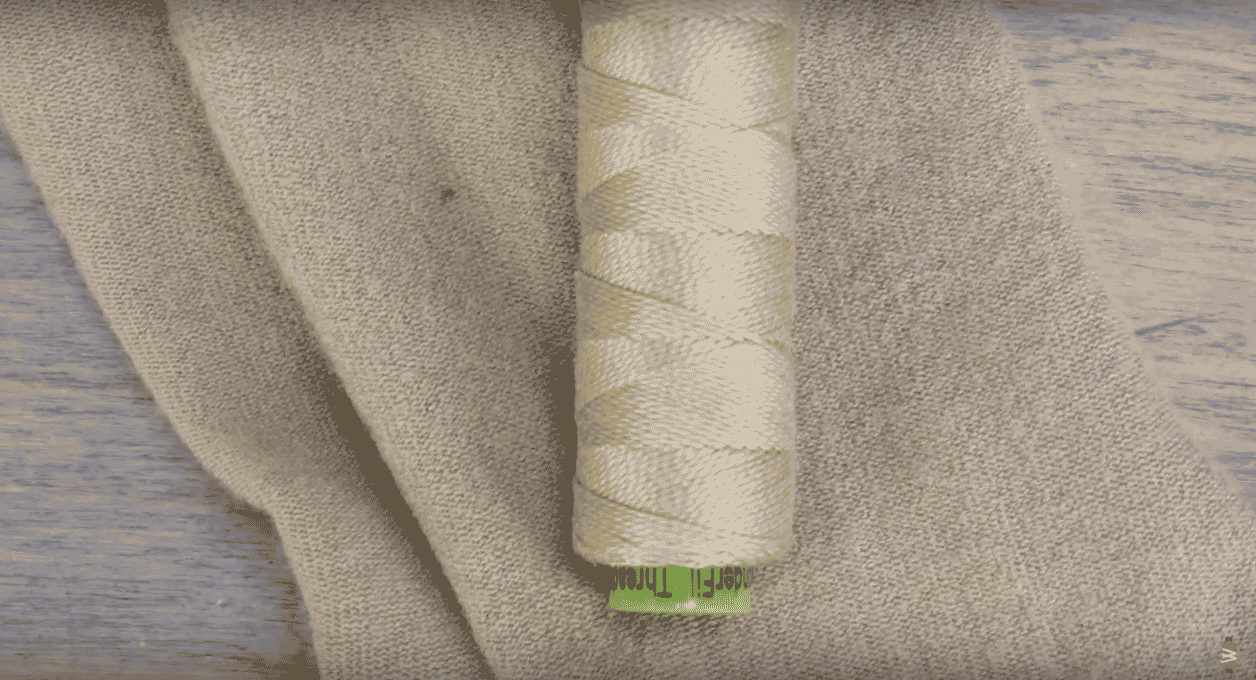
We are using a darning mushroom, this will give us a nice large curved surface that makes the perfect platform to do the stitches on. We got ours from Clover, though there are many places that you can get one. As an alternative you could use anything small and curved like a snow globe, mug, jar, etc.
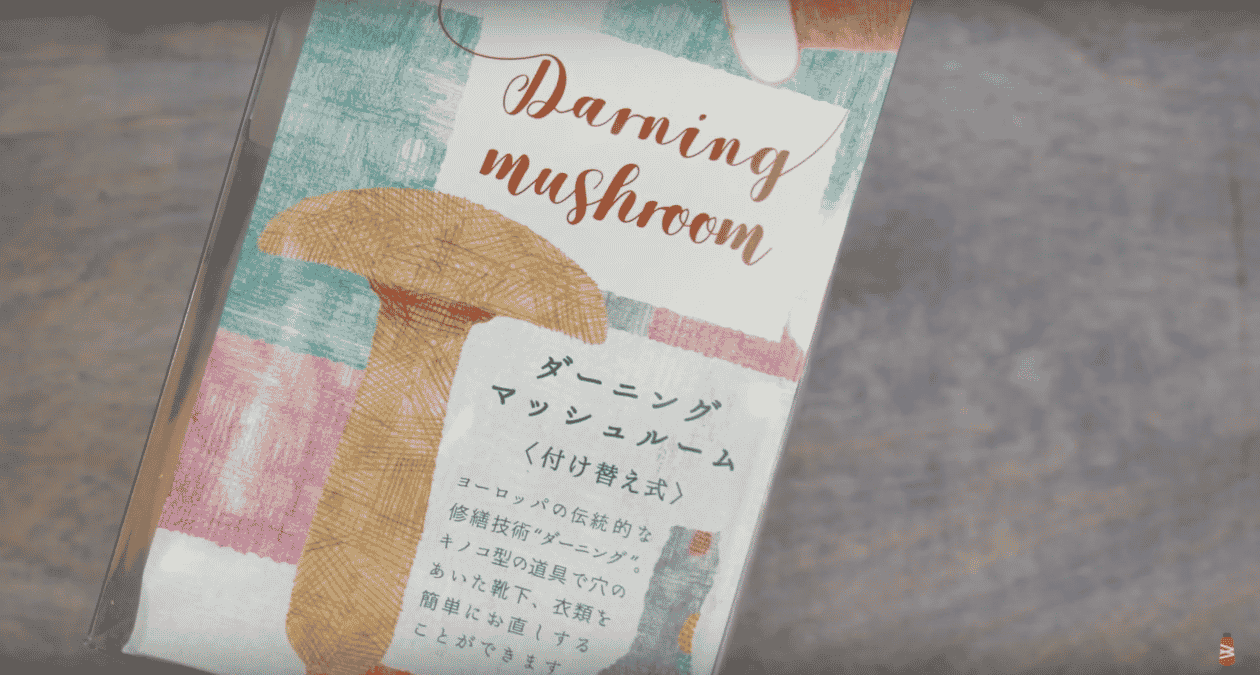
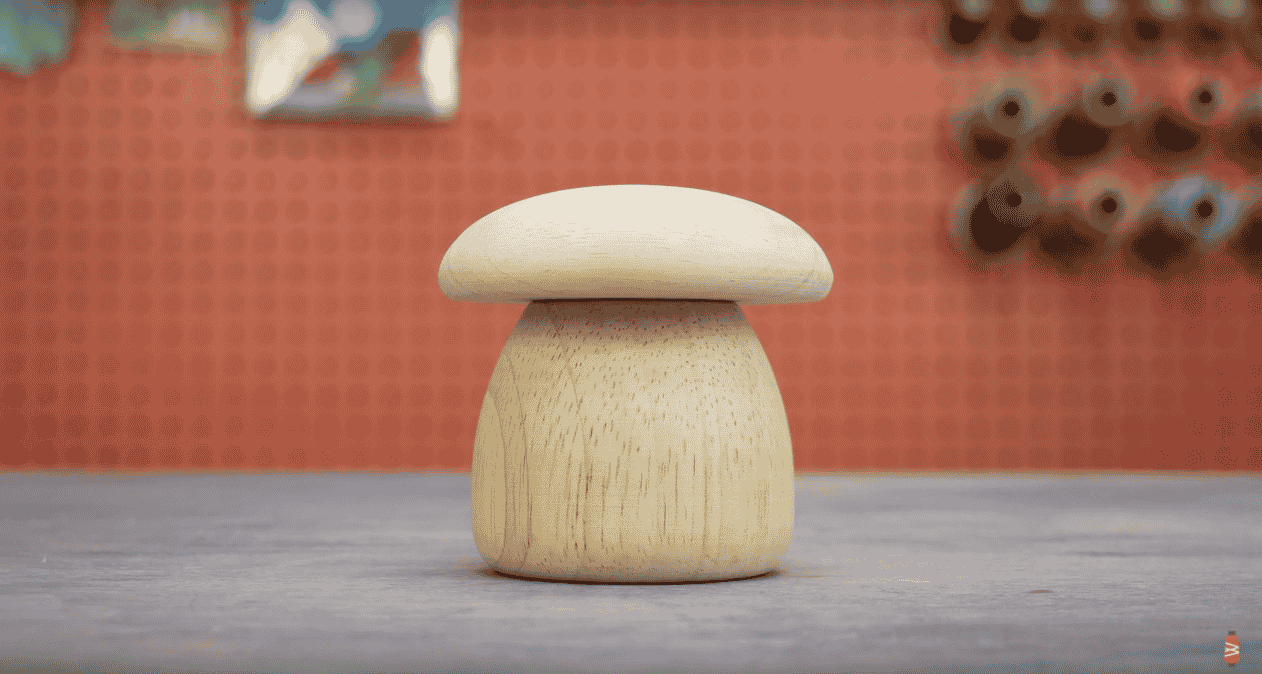
We are going to be using a needle that comes with this kit to darn our socks. There are three sizes of needle included in this- use the appropriate size based on the thread for mending the sock.
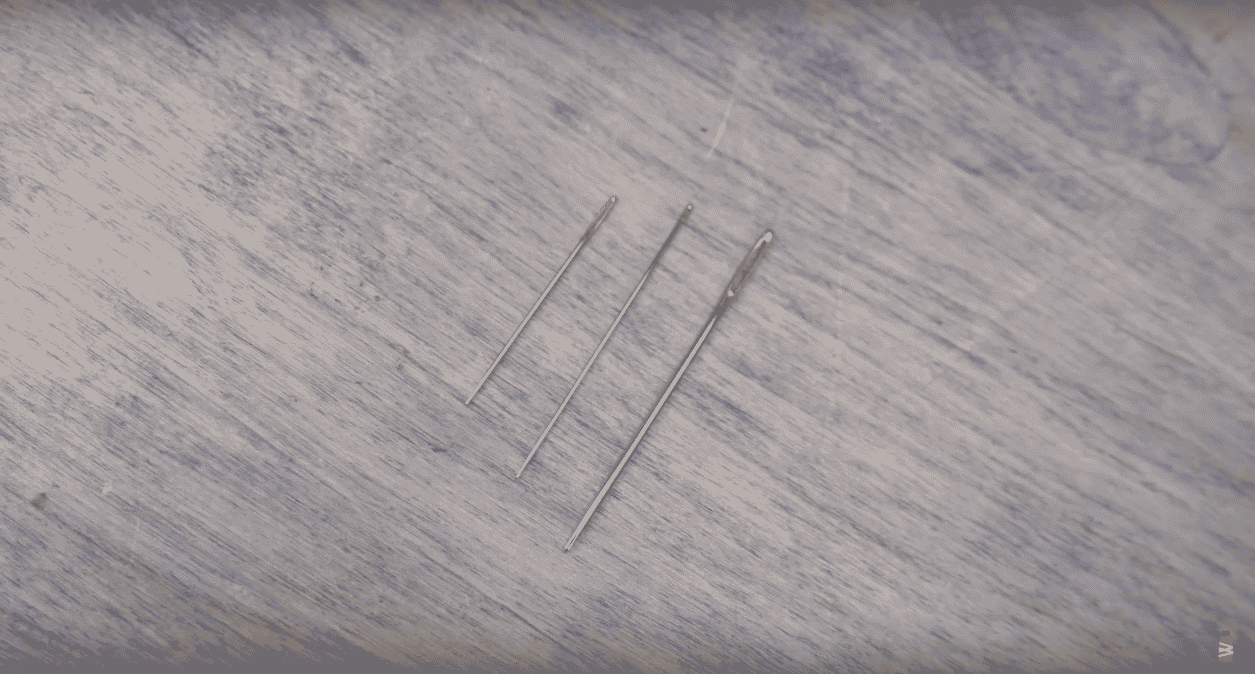
You want to place your sock onto the darning tool. Make sure the right side of the sock is facing out so you can see it.
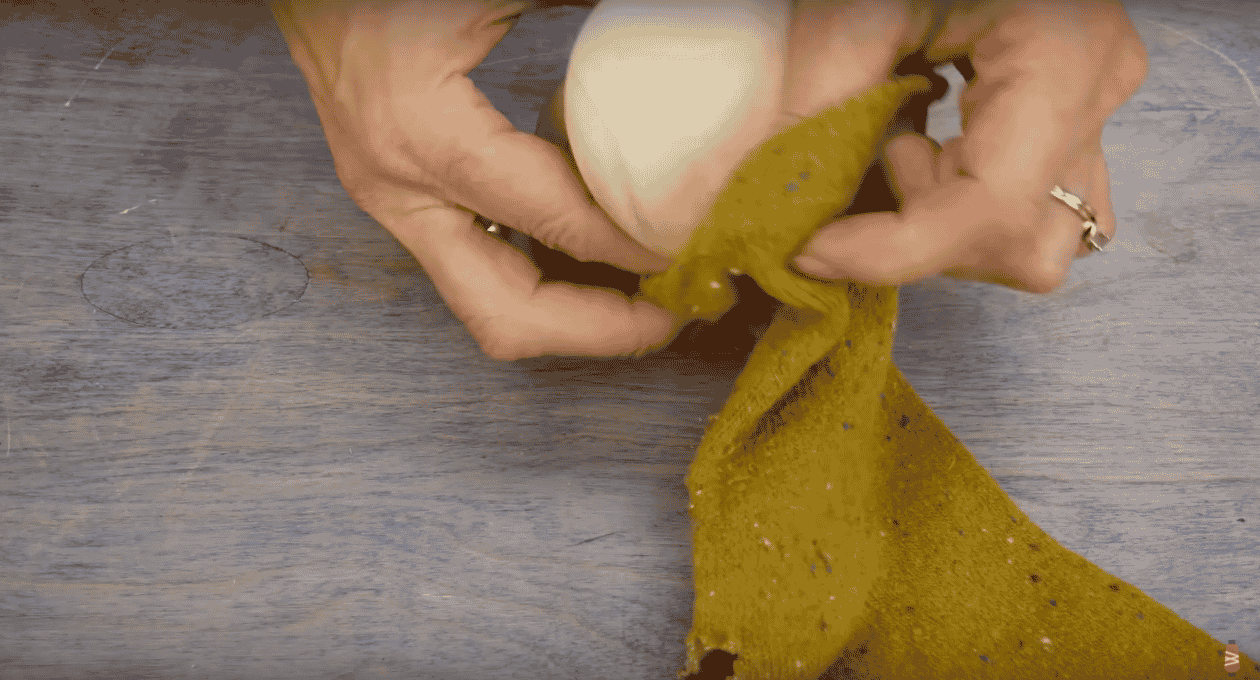
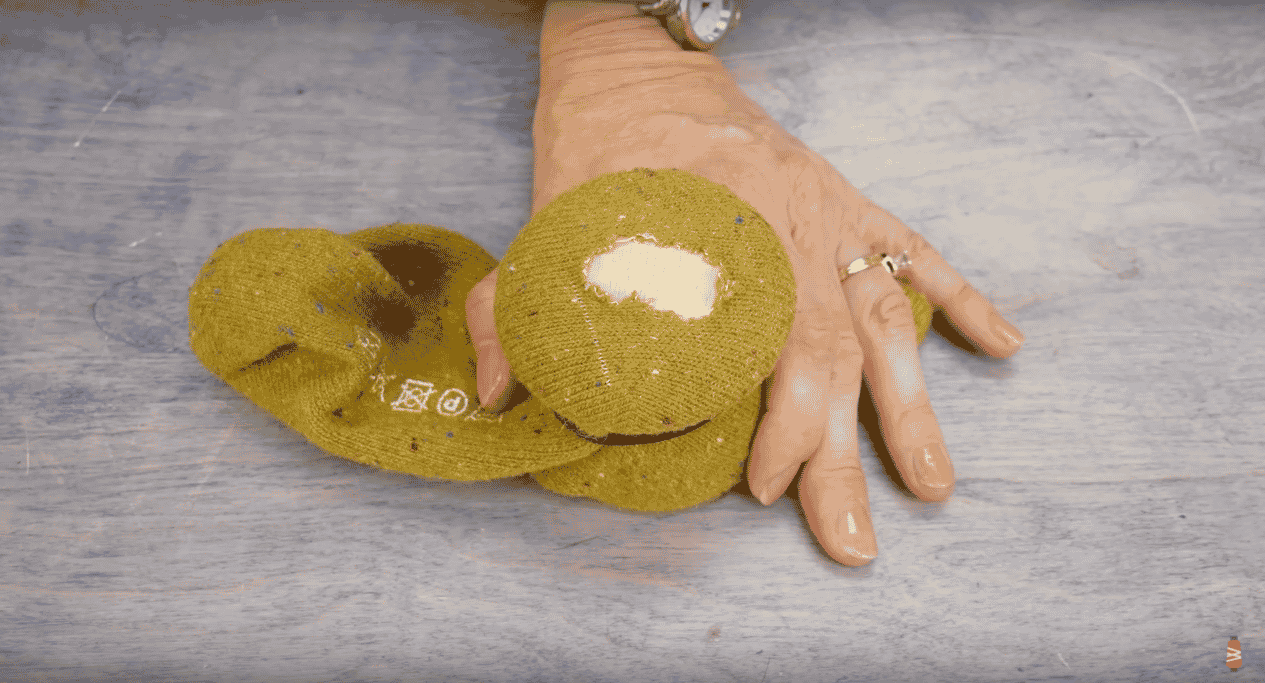 You want to position so you have a nice placement of your hole over the darning tool. Then secure with the band included- or use an elastic band/ hair tie.
You want to position so you have a nice placement of your hole over the darning tool. Then secure with the band included- or use an elastic band/ hair tie.
For our hole we are cutting about 20” of the Eleganza 3 wt thread. This measurement will of course differ depending on the size of your hole.

Thread your needle and then we are ready to start sewing! Start on the top right of your hole. Pull the thread through with a knot on the wrong side.
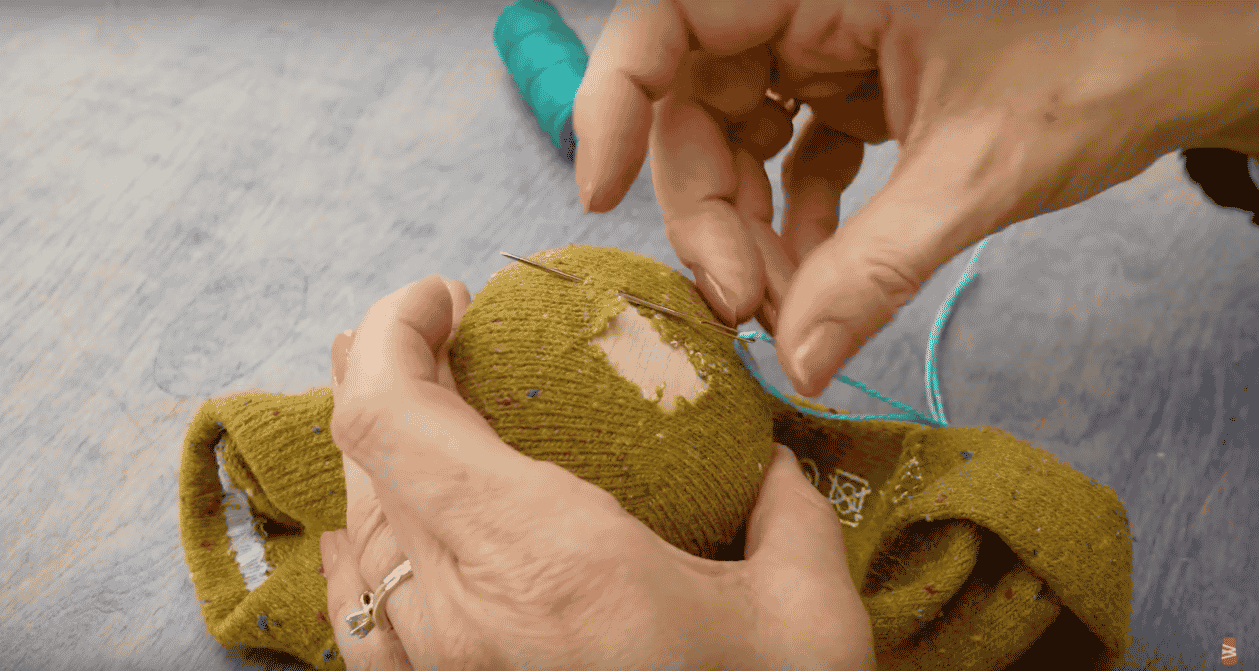
Then pull your thread through down to the opposite side on the bottom.
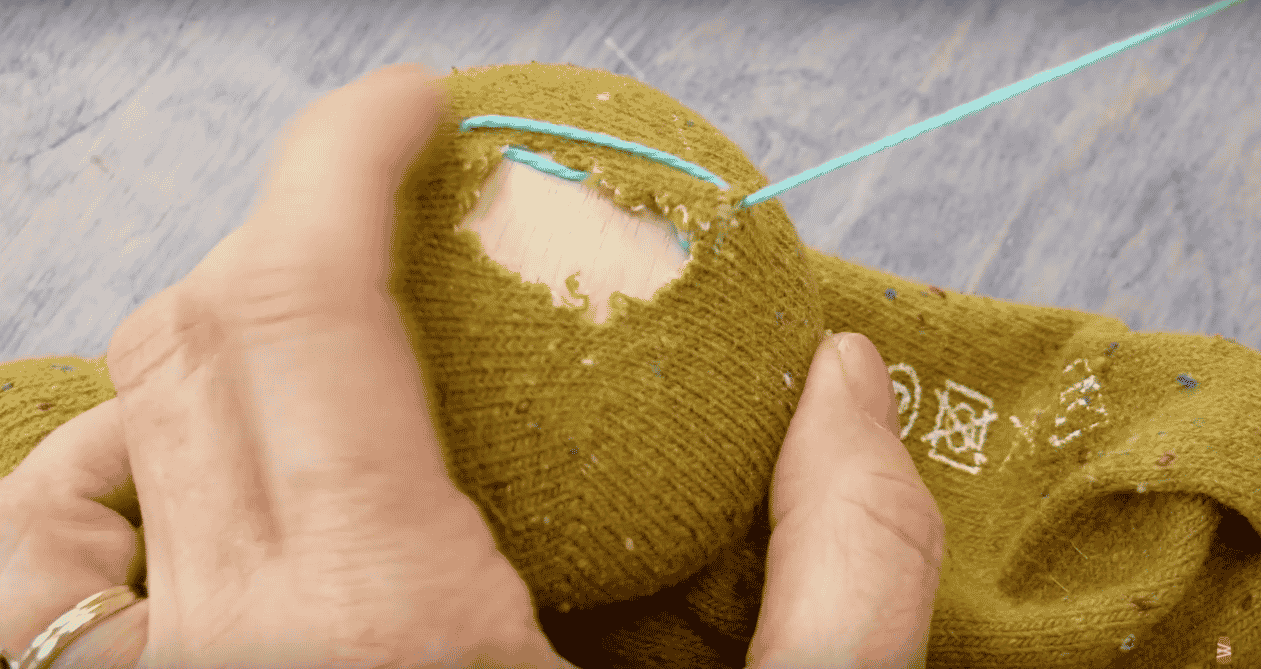
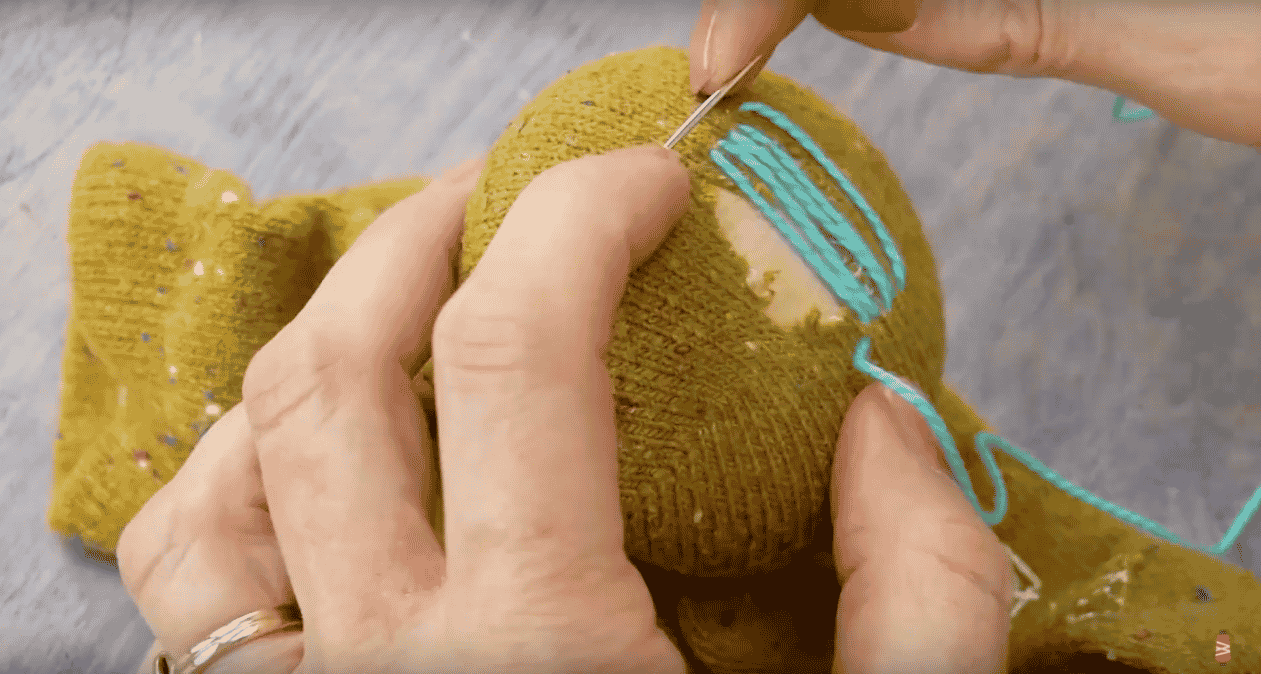 Then repeat, working from right to left.
Then repeat, working from right to left.
Once you have covered the hole, extend a little past into the fabric- just to secure the thread. You can remove from your needle, but leave the tail long for now as we will secure and tie it off at the end.
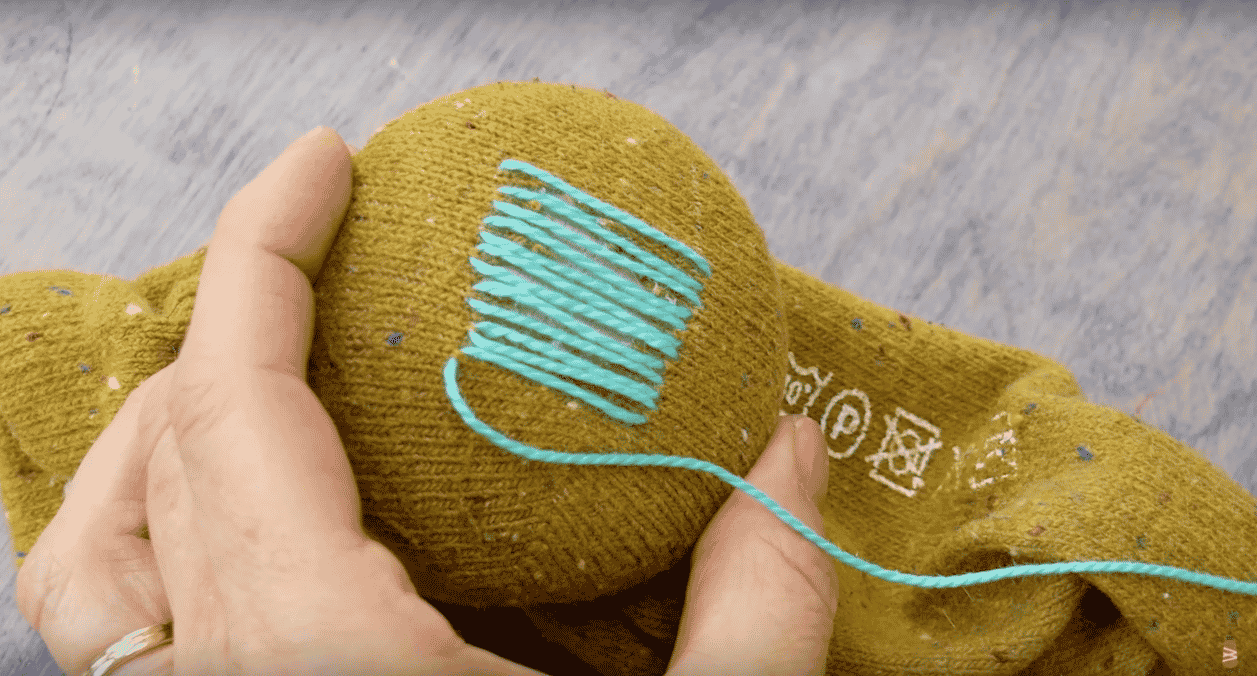
Next to make this mending stronger we are creating a weaved stitch in the opposite direction. You can use the same color of thread, but to make it look a little funkier we are doing an accenting color. Working perpendicular, with your needle weave above and below the previously created stitches.
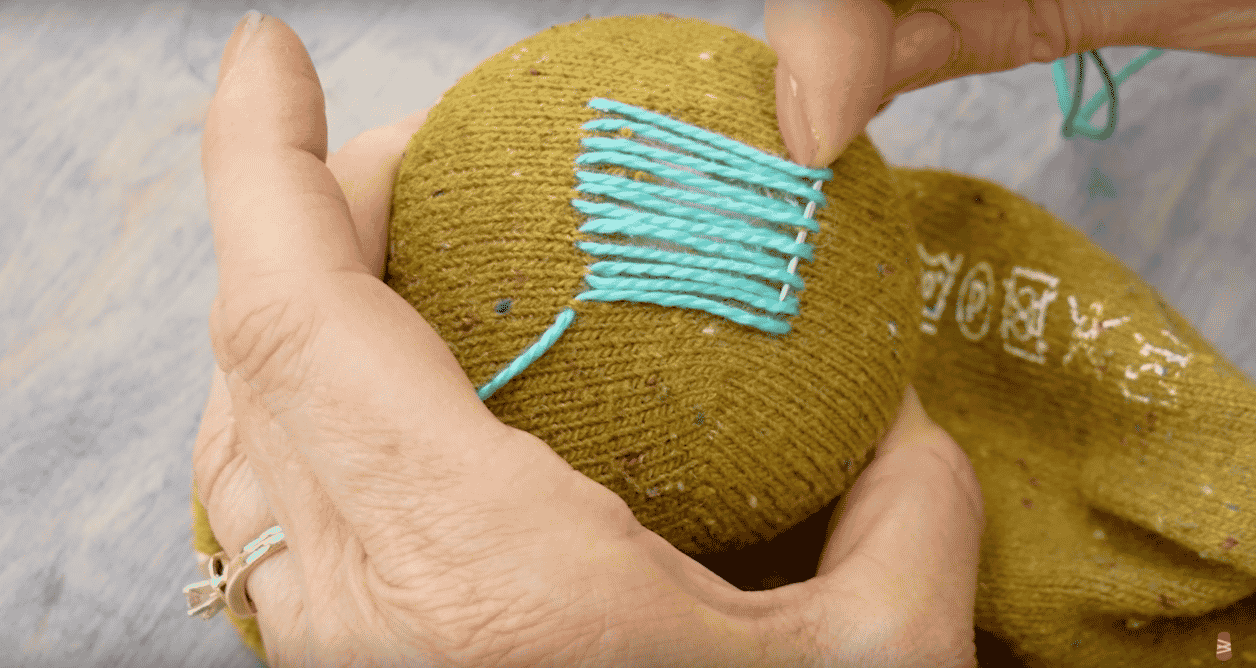
Leave a long tail where you started your stitch, and once you reach the other side take a small pick of the sock before starting the next line of the weave.
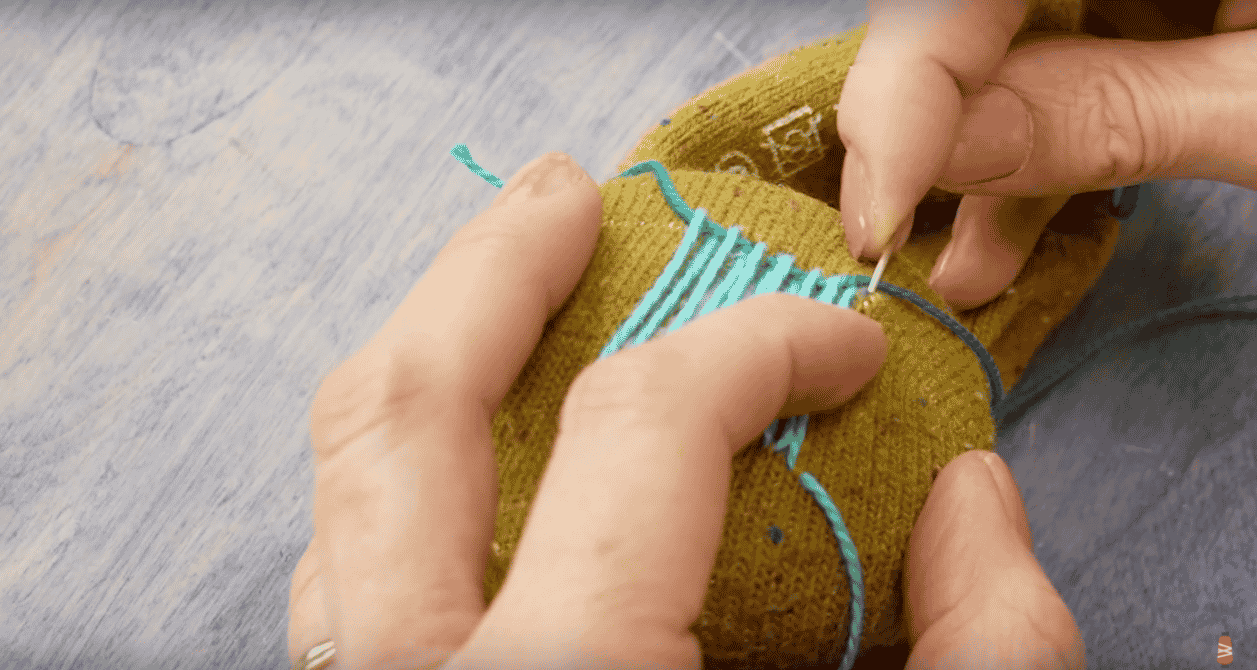
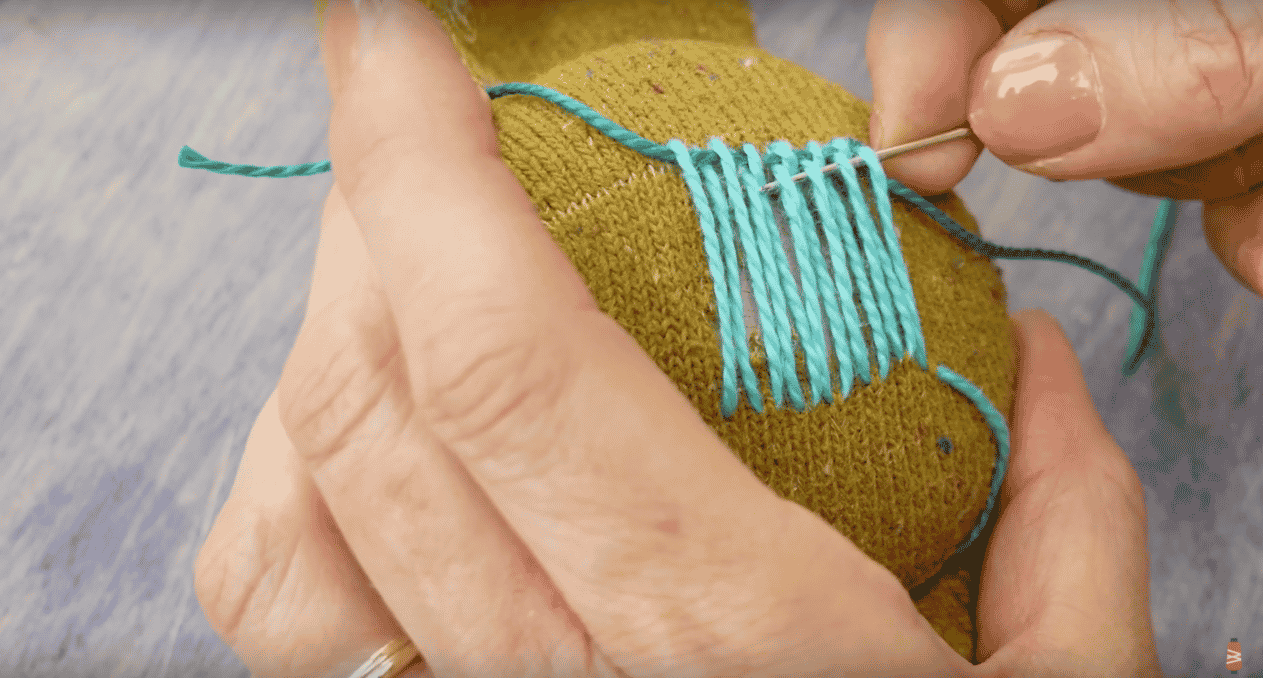 When you have your stitch in the sock fabric at the end of the row, then you can continue back the way your started going under and over the opposite threads you did in the first row. Make sure you are going over and under the correct thread for your row, or else the weave pattern will not be created.
When you have your stitch in the sock fabric at the end of the row, then you can continue back the way your started going under and over the opposite threads you did in the first row. Make sure you are going over and under the correct thread for your row, or else the weave pattern will not be created.
Continue until you have filled the whole area with the weave. You should have a tight and strong area now. Leave all of the thread ends long.
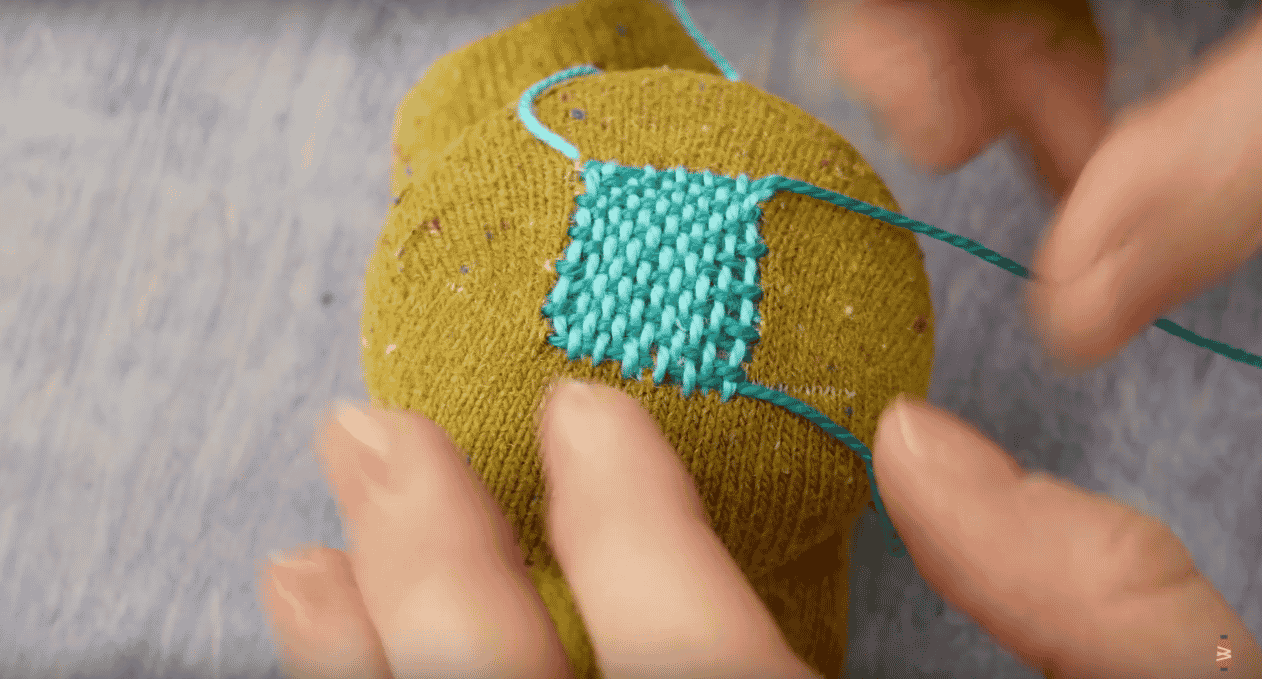
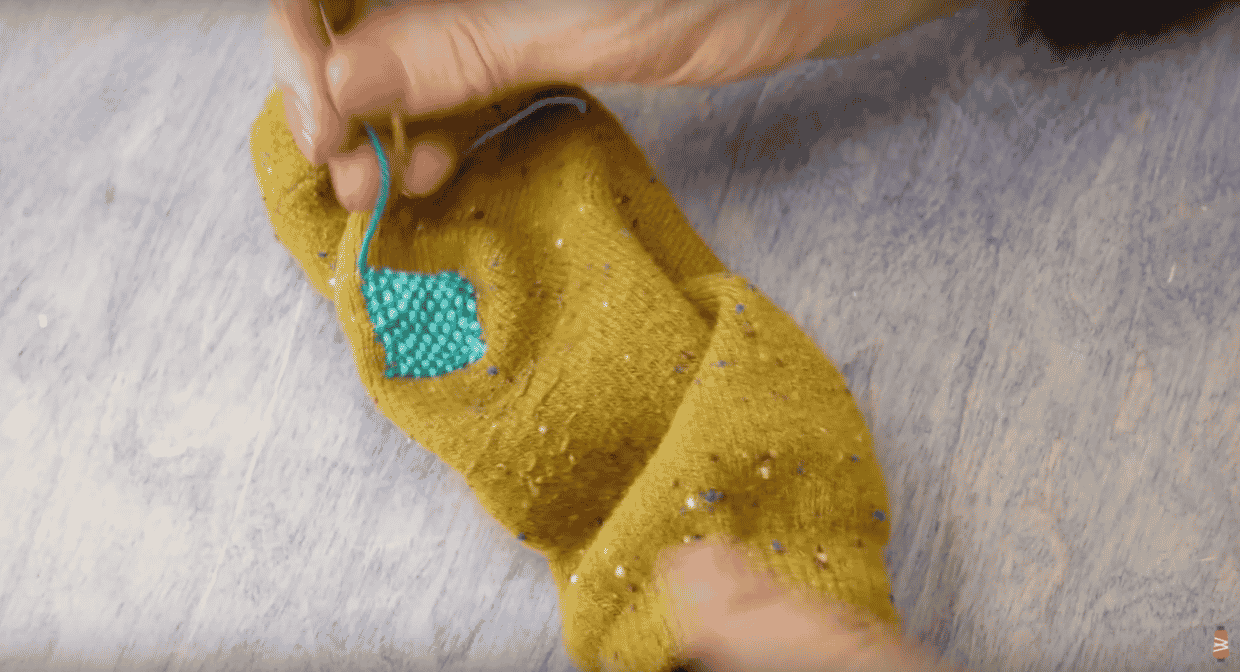
You can pull the sock off the darning tool and cut the thread tails to about 2 or 3 inches.
Next pull the threads through to the wrong side of the sock using the needle.
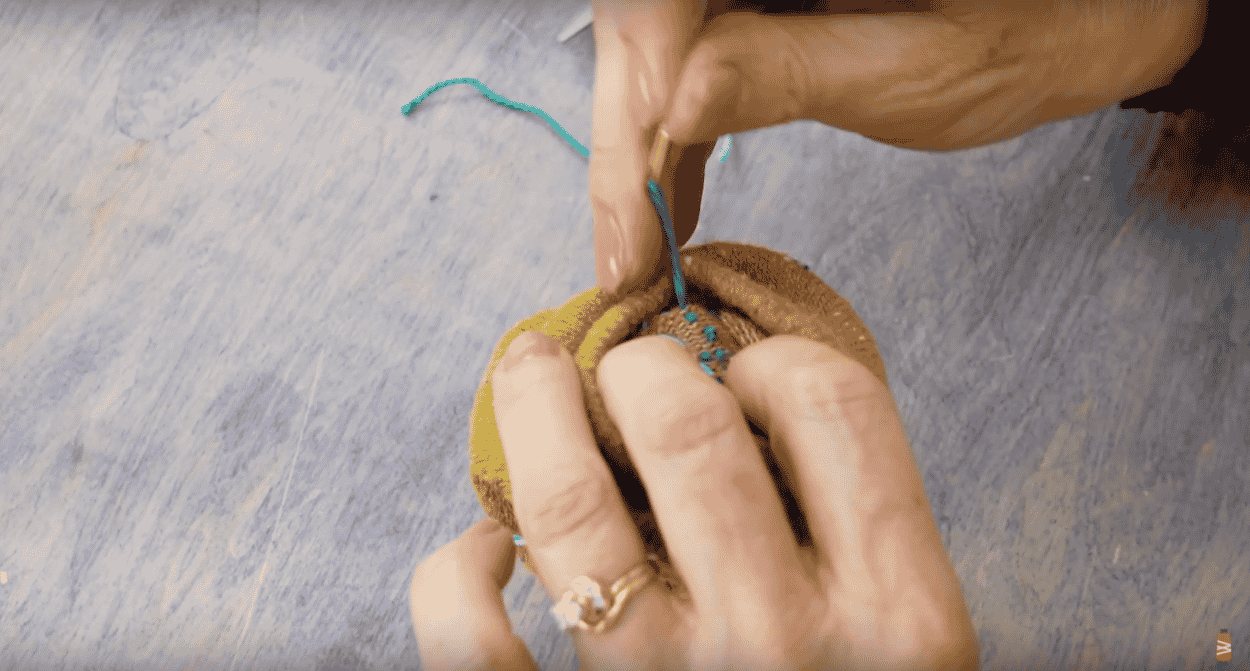
Take the extra thread strand and stitch a few small stitches on the wrong side before tying a knot. Repeat for all thread tails.
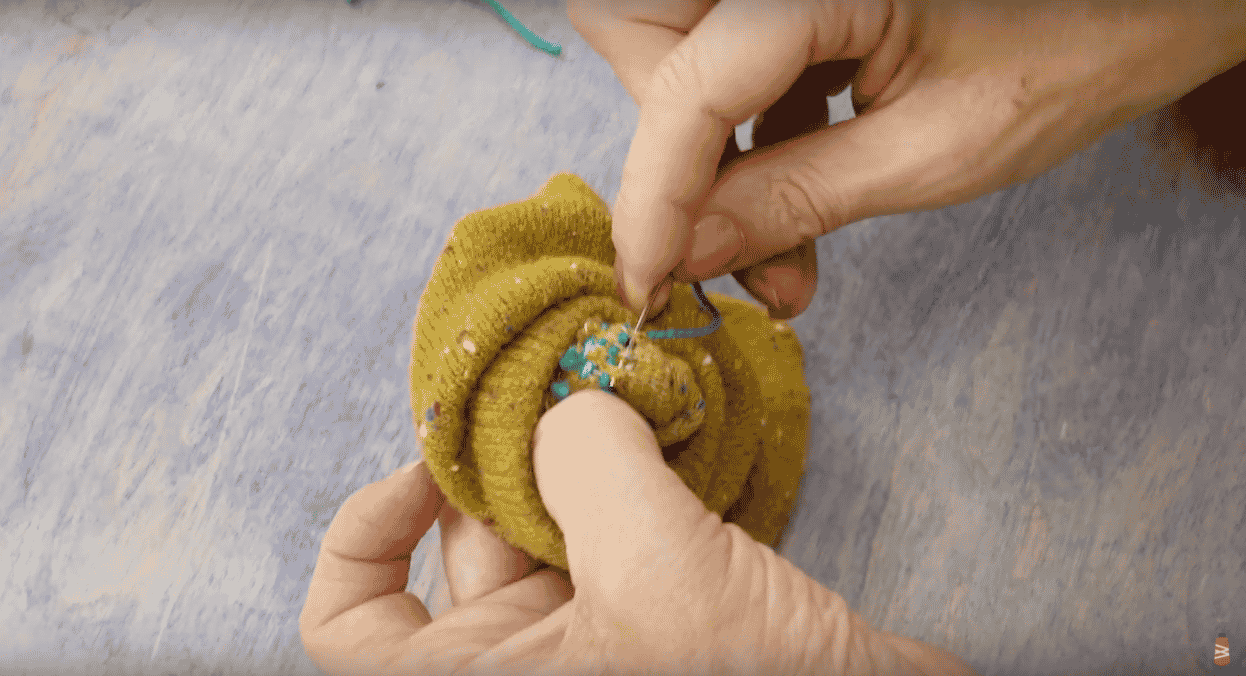
Once finished then iron the patch to smooth it out.
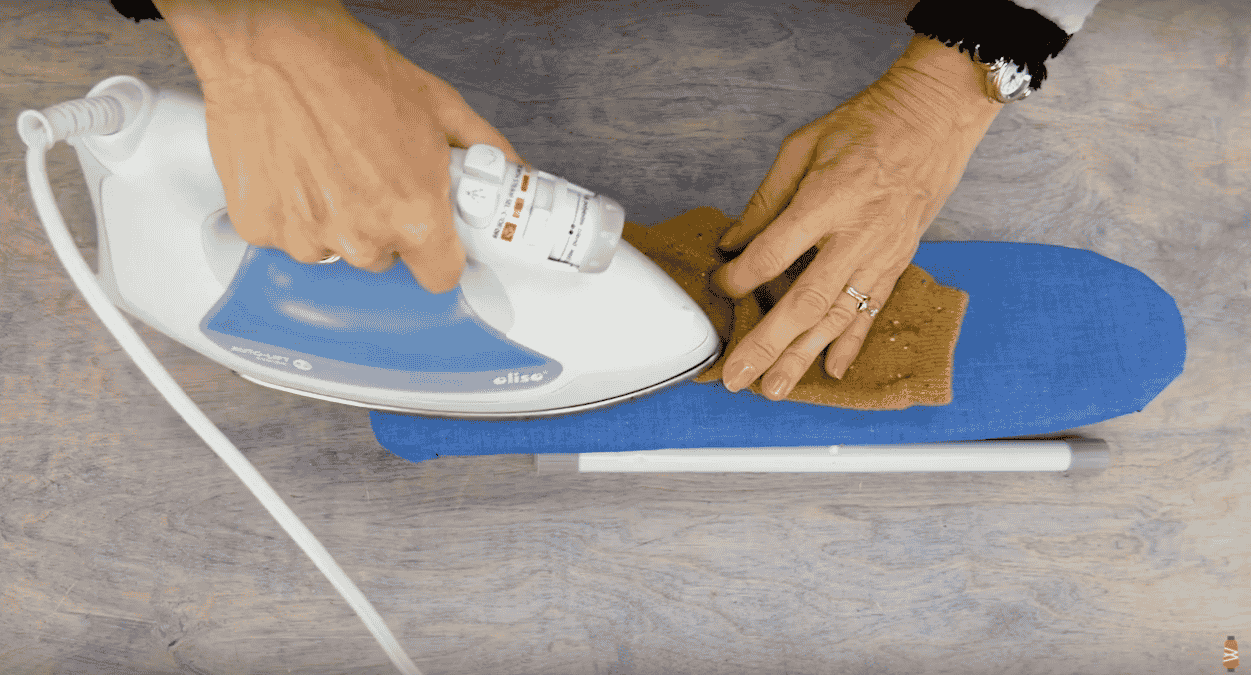
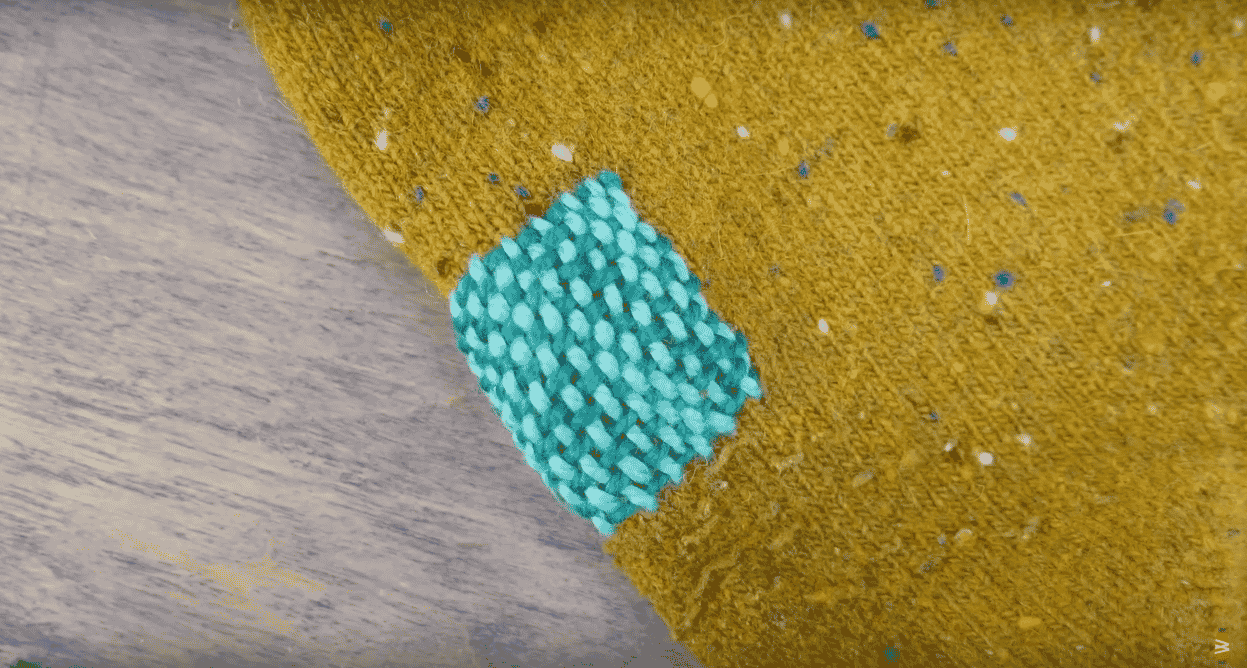 Now you have a super cool patch that will add a little pop of color.
Now you have a super cool patch that will add a little pop of color.
Next we are going to work on the subtle mending technique. Make sure to use a matching thread color. Starting an inch to the right of your hole, knot the thread on the wrong side.
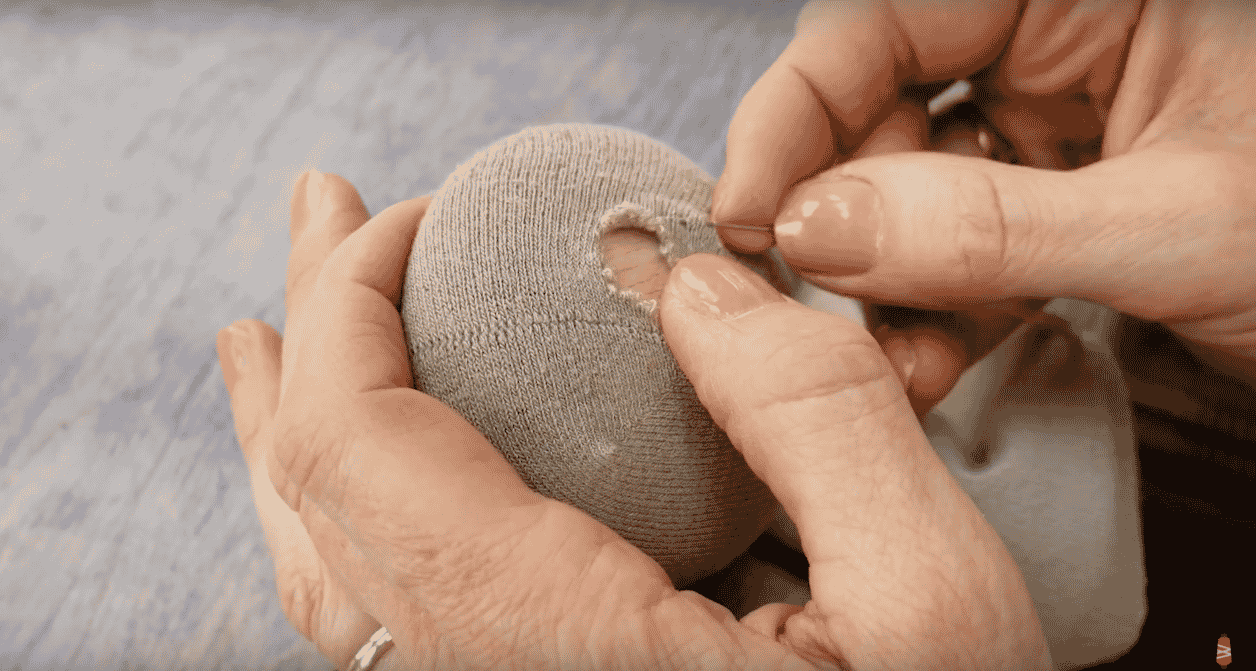
You are going to do a running stitch going in and out of the sock fabric, picking up a few stands of the fabric in each stitch. Just go from top to bottom of the length of the hole.
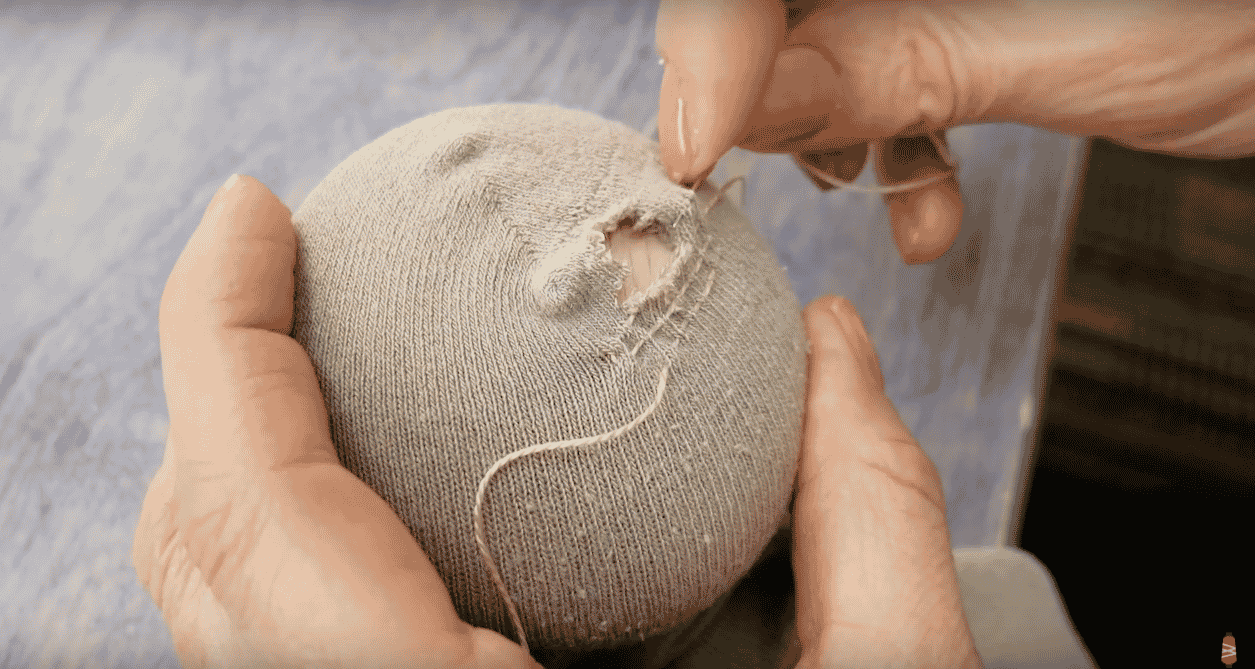
When you get to the hole then continue the running stitch on either side of it- and over the hole just keep the strand extended. We are going to weave this closed later.
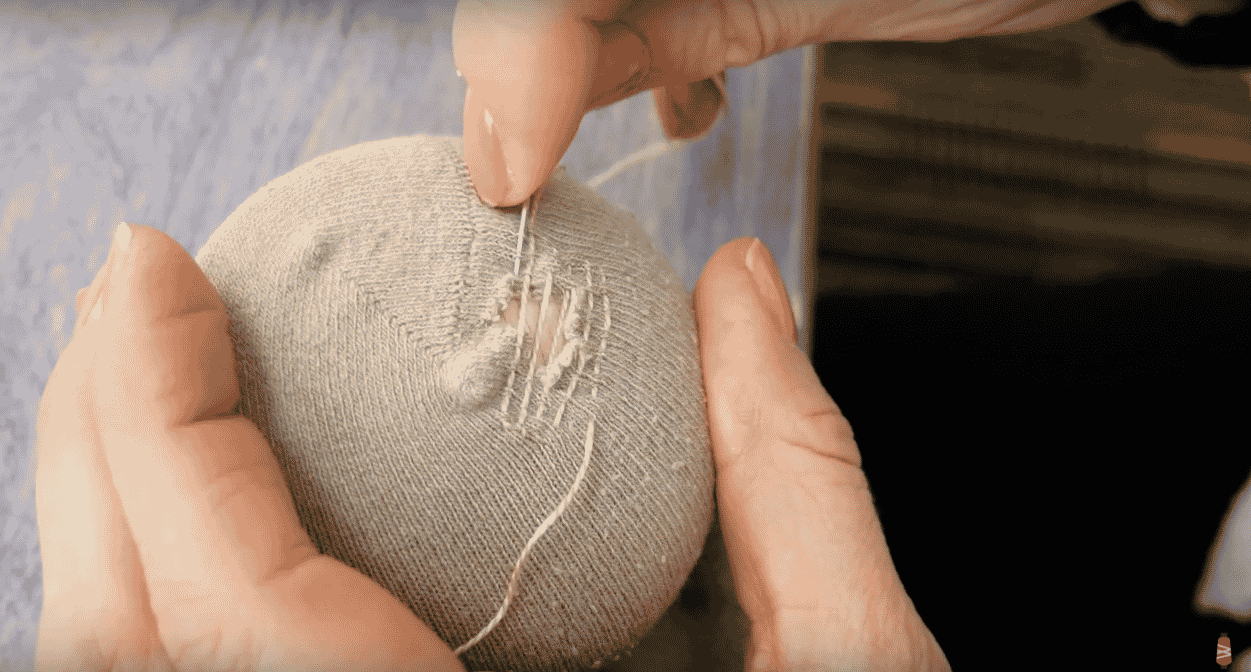
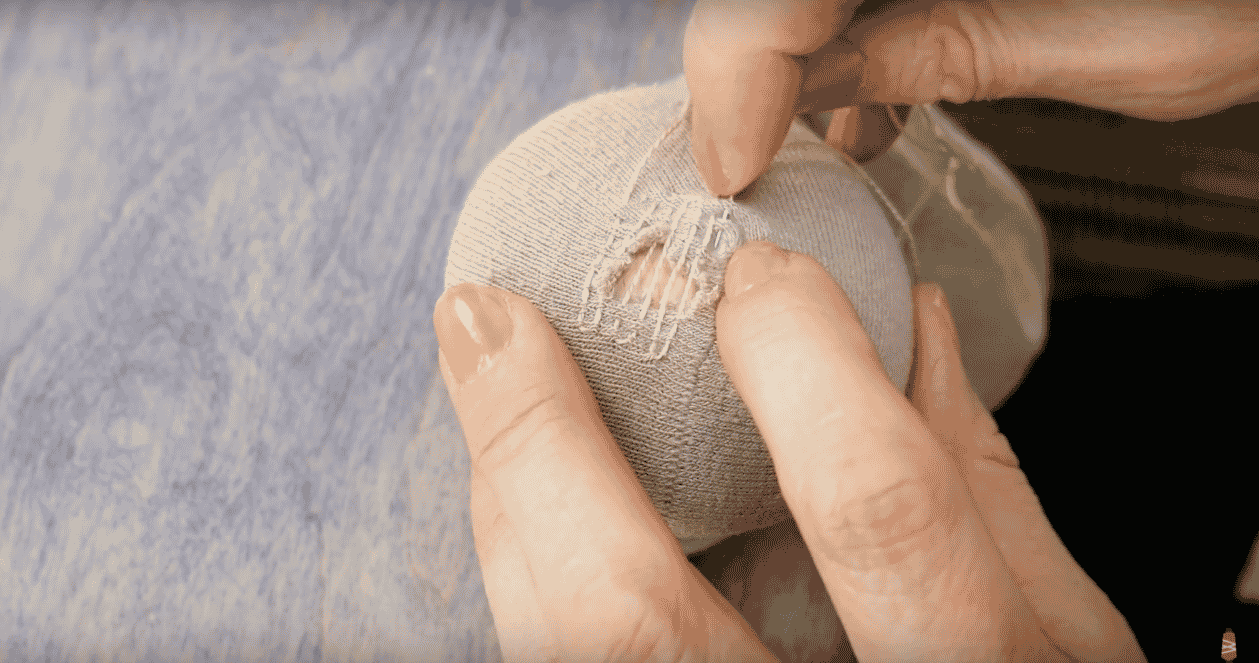 Once you have stitched over the hole area completely then you can remove the thread from the needle, leaving long tails.
Once you have stitched over the hole area completely then you can remove the thread from the needle, leaving long tails.
Start the running stitches in the opposite direction. When reaching the hole, then make sure the thread is woven.
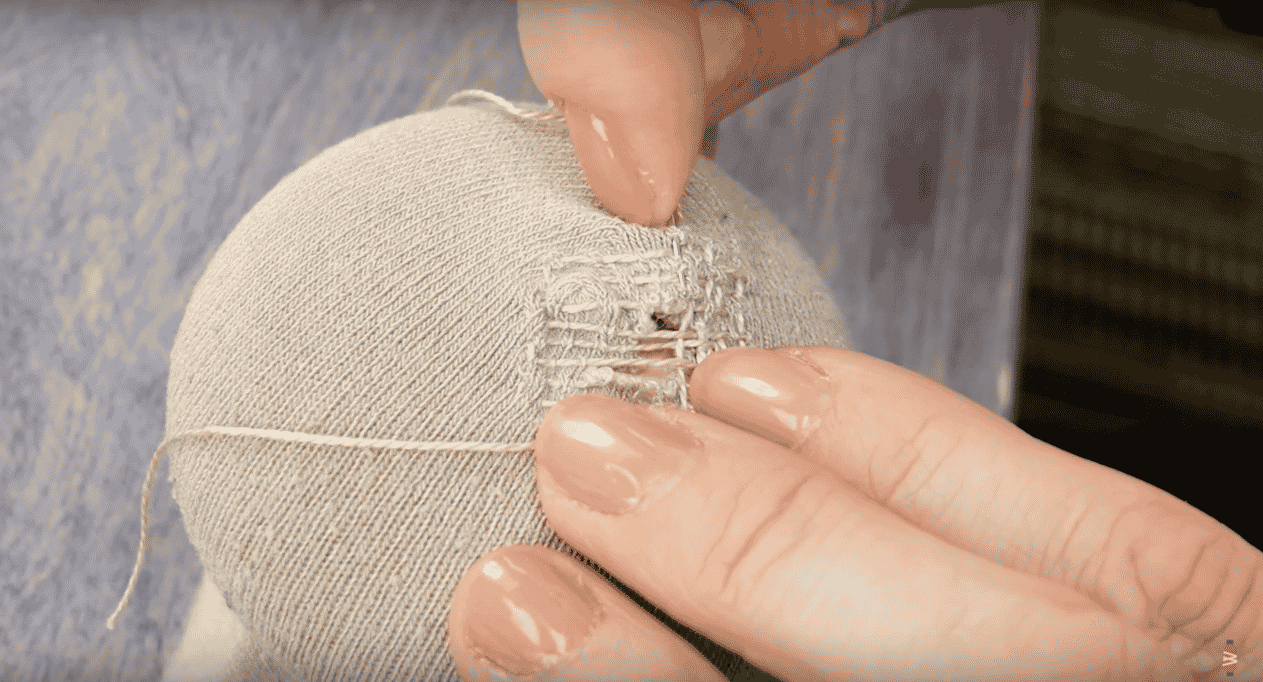
The weave over the hole with ensure more stability in the area. We use the running stitch to secure it into the fabric.
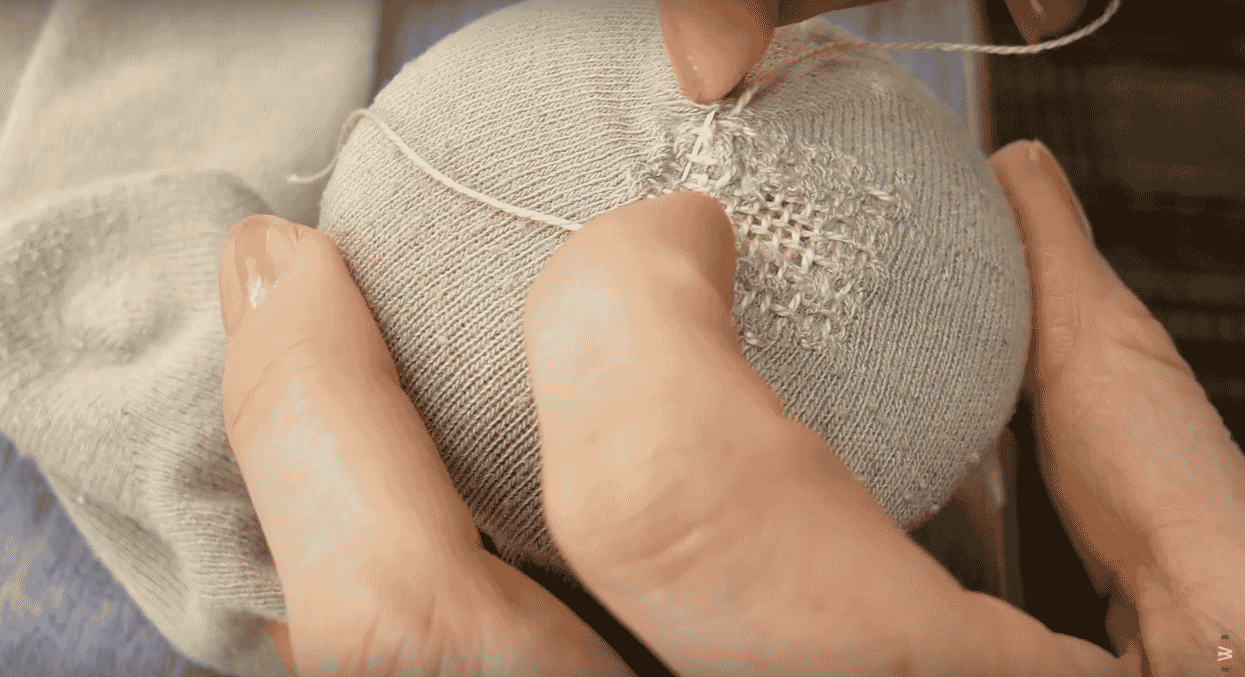
When you have finished stitching in this direction then we can keep the thread tails long and take the sock off of the darning tool. We can then repeat what we did with the first sock, and with a needle pull the thread tails to the wrong side.
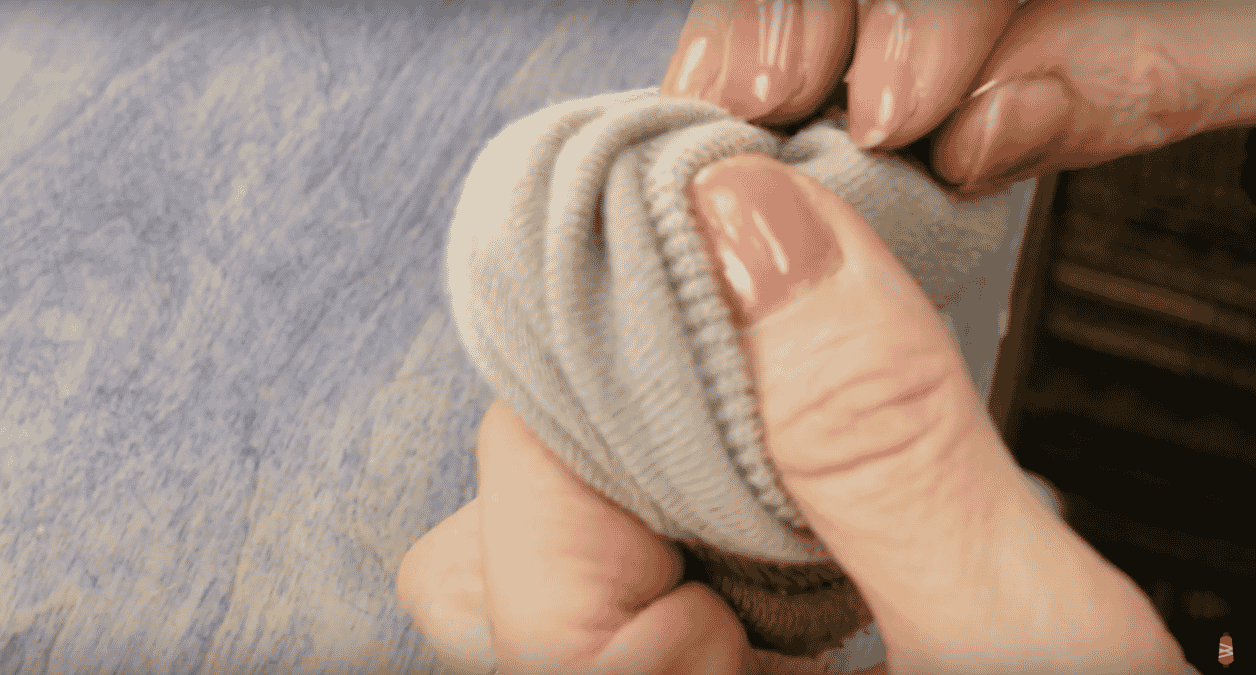
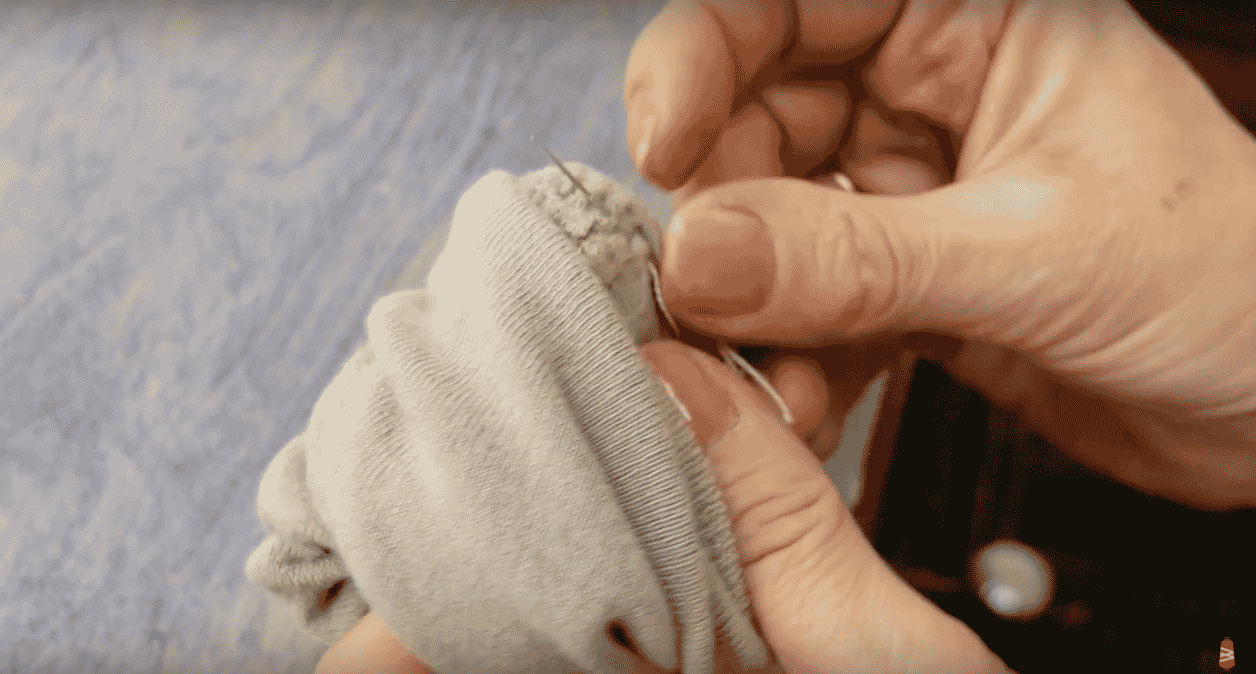 And again you want to pick up a few stitches on the wrong side before tying a knot. Repeat this step will all thread tails.
And again you want to pick up a few stitches on the wrong side before tying a knot. Repeat this step will all thread tails.
Once completed then iron the patch to flatten.
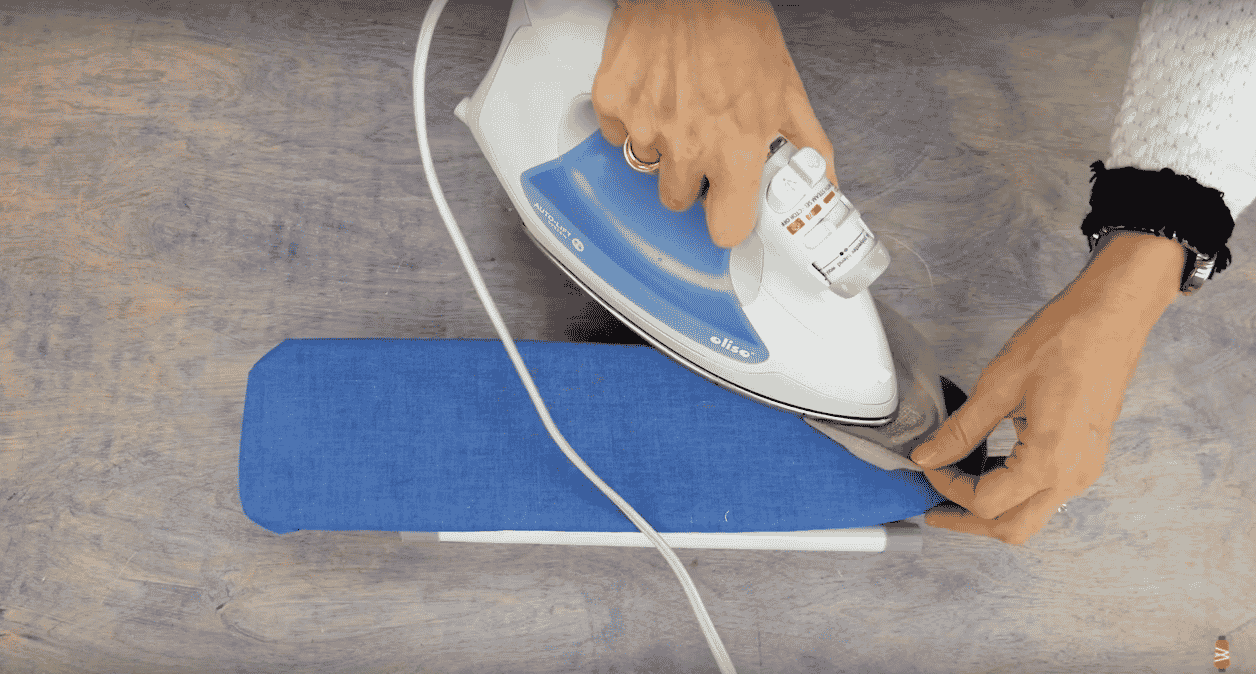
With the right thread and the darning tools, no hole is too daunting to fix
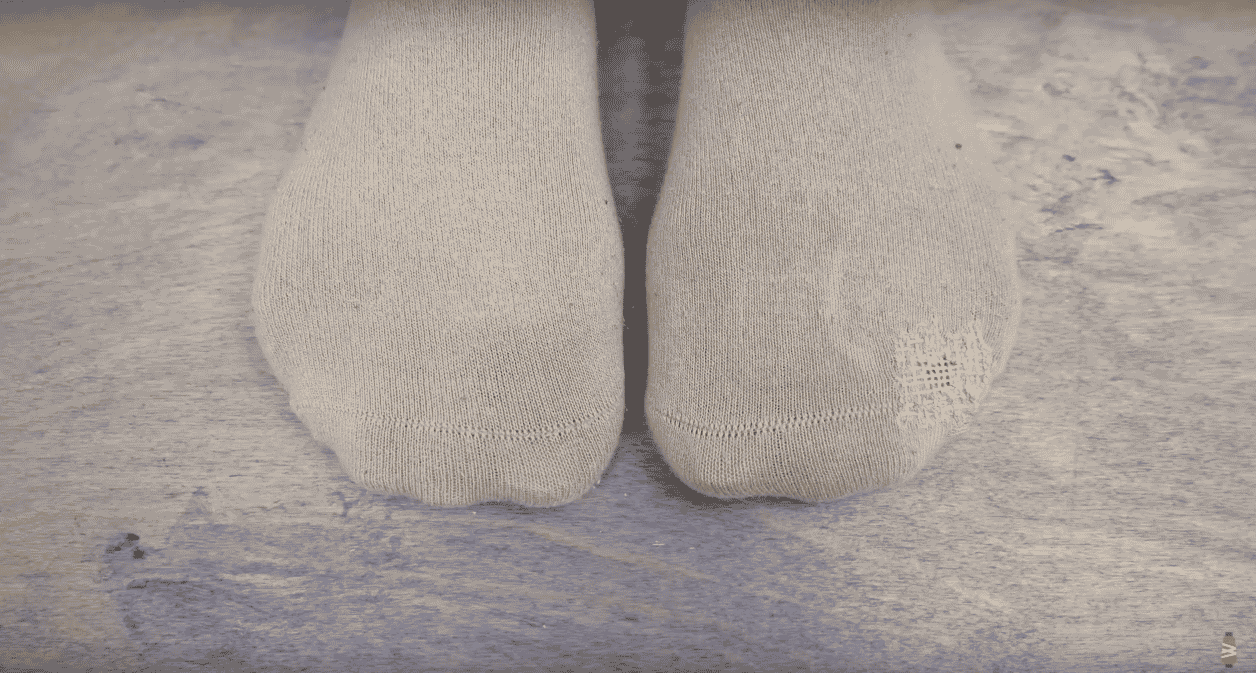
We also repeated this weaving technique on a much larger hole using 8wt thread and these are the results:
